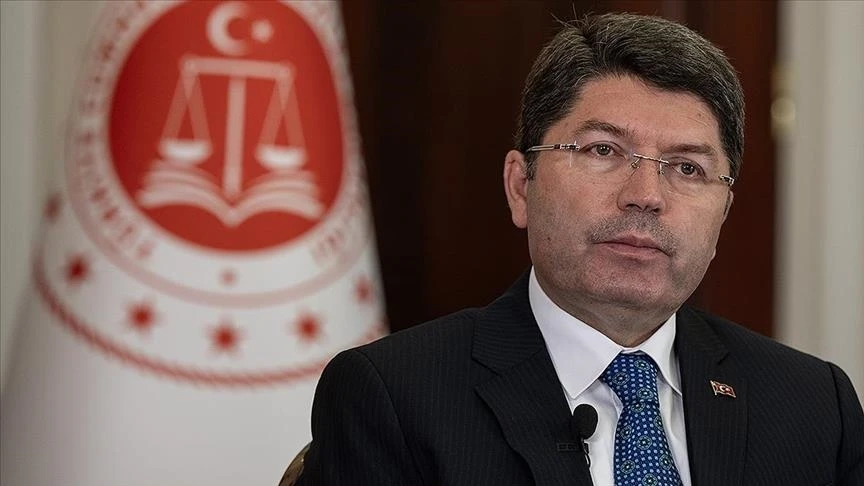Justice minister warns against false claims of finance minister’s resignation
 Turkish Justice Minister Yilmaz Tunc condemns Netanyahu's US Congress address, calling it a "disgrace to humanity" amid ongoing Gaza conflict (AA Photo)
Turkish Justice Minister Yilmaz Tunc condemns Netanyahu's US Congress address, calling it a "disgrace to humanity" amid ongoing Gaza conflict (AA Photo)
Justice Minister Yilmaz Tunc has issued a stern warning to those spreading false claims about Treasury and Finance Minister Mehmet Simsek’s resignation, announcing that the Ankara Chief Public Prosecutor’s Office has launched an investigation into the matter.
In a statement shared via social media, Tunc addressed the issue directly: “Certain social media platforms have propagated baseless resignation rumors about our Treasury and Finance Minister Mehmet Simsek. These misleading reports aimed to misdirect stock market investors, causing them financial harm and leading to unusual price and volume movements. Those responsible for these deliberate and deceptive news reports are now facing a criminal investigation under Article 217/A of the Turkish Penal Code for ‘Public Dissemination of Misleading Information,’ as well as Article 107/2 of the Capital Markets Law. The Ankara Chief Public Prosecutor’s Office has initiated this investigation ex officio. We will not tolerate those who mislead the public with misinformation and cause economic speculation through such statements.”
This decisive action underscores the government’s commitment to combat misinformation and maintain market integrity.
Disinformation center refutes rumors about Finance Minister Simsek’s resignation
The rumors picked up momentum after various platforms claimed that Simsek had resigned nearly two weeks ago and that Vice President Cevdet Yilmaz convinced him to stay. However, the Presidency’s Directorate of Communication’s Center for Combating Disinformation refuted these claims on Wednesday, stating that the allegations of Simsek’s resignation and subsequent persuasion to remain in office are false.
After last year’s presidential and parliamentary elections, Simsek took charge and, along Yilmaz, led a significant shift toward more orthodox economic policies, primarily to tackle soaring inflation.
Since June of last year, the central bank has increased its policy rate by 4,150 basis points, reversing years of monetary stimulus aimed at boosting economic growth.
In March, the bank raised rates by 500 basis points to 50%, concluding an aggressive tightening cycle to control rising prices. Since then, it has held rates steady but has pledged to raise them further if the economic outlook deteriorates.
Annual inflation started to decline in June, reaching 61.78% last month, marking the beginning of a gradual and sustained decrease.
To support the central bank’s aggressive interest rate hikes, Yilmaz and Simsek introduced a savings and productivity plan aimed at improving public finance efficiency and implementing a major tax reform, including the introduction of a minimum corporate tax.



